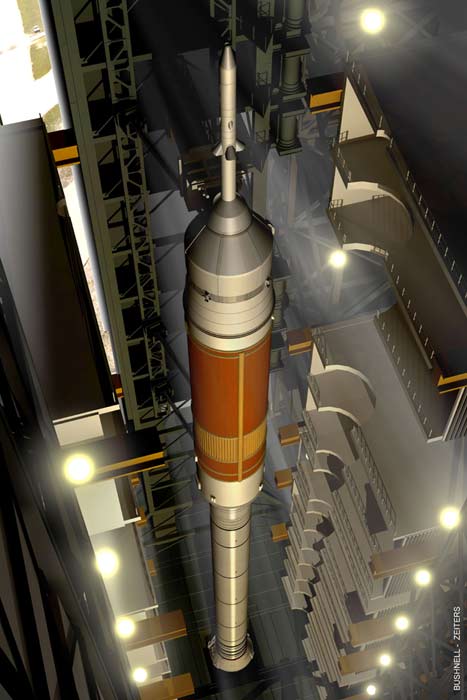NASA Taps Boeing to Build Avionics for New Rocket

WASHINGTON -- Boeing Space Exploration of Houston nabbed itssecond major role on NASA's new astronaut launcher, winning a contractpotentially worth $800 million to build and outfit an avionics ring that willcontrol the Ares I rocket in flight.
Boeing beatout Ball Aerospace and Technologies Corp. for the contract award, denying theBoulder, Colo., company what would have been its first piece of NASA's plannedspace shuttle replacement.
"Theirfinal proposals were very competitive and they point to the value of competitionin awarding these contracts," said Doug Cooke, NASA deputy associateadministrator for exploration systems.
Theavionics ring will be mounted to the Ares I upperstage, which Boeing was selected to produce in August under a contract thatcould be worth as much as $1.13 billion.
The valueof the initial Ares I avionics contract, which runs through 2016 and includesone ground test unit, three flight test units and six production units, is $265.5million. Additional work not included in the initial deal could be worth $420million, and that plus $114 million for another 12 flight units could bring thetotal value of the deal to $799.5 million, NASA said in a press release.
The AresI launcher features a core stage based on the space shuttle's solid-rocketboosters and a liquid-fueled upper stage. The vehicle design is being led byNASA's Marshall Space Flight Center in Huntsville, Ala., with major supportfrom Alliant TechSystems, Pratt & Whitney Rocketdyne and Boeing.
LockheedMartin Space Systems of Denver is responsible for building the OrionCrew Exploration Vehicle that will launch atop Ares I, initially onmissions to the international space station and eventually, NASA hopes, to theMoon.
Get the Space.com Newsletter
Breaking space news, the latest updates on rocket launches, skywatching events and more!
Theavionics ring will be outfitted with all the electronics needed to provideguidance, navigation and control for the entire Ares I rocket. Boeing's job isto select the electronic components that best meet NASA's needs and install themon the inside of a large metal ring that connects the Ares I upper stage andthe Orion capsule.
A total offive teams submitted proposals this summer for the so-called Instrument UnitAvionics contract. In early October, NASA quietly narrowed the field ofcontenders to Boeing and Ball. The three firms passed over for furtherconsideration were BAE Systems, Honeywell Technology Solutions and RaytheonMissile Systems. That decision surprised some aerospace analysts who saw thosethree major avionics vendors as favorites heading into the competition.
- VIDEO: Moon 2.0: Join the Revolution
- VIDEO: A New Era of Exploration with NASA's Orion and Ares
- IMAGES: NASA's Next Spaceship
Join our Space Forums to keep talking space on the latest missions, night sky and more! And if you have a news tip, correction or comment, let us know at: community@space.com.
Brian Berger is the Editor-in-Chief of SpaceNews, a bi-weekly space industry news magazine, and SpaceNews.com. He joined SpaceNews covering NASA in 1998 and was named Senior Staff Writer in 2004 before becoming Deputy Editor in 2008. Brian's reporting on NASA's 2003 Columbia space shuttle accident and received the Communications Award from the National Space Club Huntsville Chapter in 2019. Brian received a bachelor's degree in magazine production and editing from Ohio University's E.W. Scripps School of Journalism.









